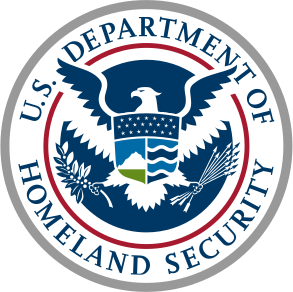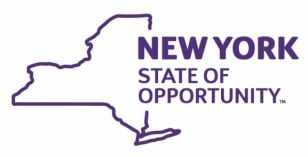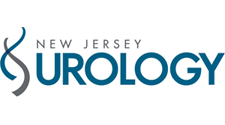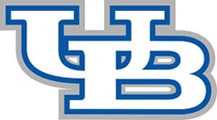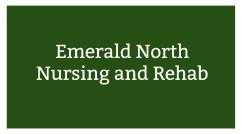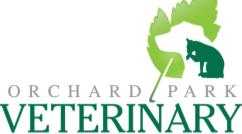Why Choose Advo Medical Waste Disposal Company?
If your current local medical waste disposal service in Washington doesn’t provide top notch service with the best pricing, then it’s time to switch to Advo medical waste disposal company. Here are some reasons why:
See how Advo Medical Waste Disposal beats the competition in Washington.
1. Superior Service
Our service is better than the competition. We offer quick and prompt medical waste pickup services with the flexibility you need to meet your biohazardous waste disposal needs.
2. Guaranteed Lower Prices
We guarantee to save you at least 30% off of your current local medical waste disposal service in Washington. We will provide you with an accurate price with a quick over the phone quote.
3. Simple Invoicing With No Hidden Fees
Our invoices are clear and easy to understand. We'll never hit you with any unexpected surcharges, environmental fees or administration fees. We guarantee that the price we quote you will be accurate.
4. Full Compliance With all Washington State and Federal Medical Waste Regulations
Advo Waste is a fully licensed and insured medical waste disposal company, and we guarantee to remain in 100% full compliance. Our highly skilled staff can conduct a compliance review of your facility as well as train your employees in proper handling and disposing of medical waste in your office.
5. Professional and Responsive Service Staff
All of our employees are highly trained and certified in handling and disposing of your medical waste and sharps. They have passed background checks and are subject to random drug tests to ensure that we have the highest quality employees.
6. Our Money-Back Guarantee
If you’re not happy with our service, we promise to make it right or we’ll refund your service fee.
Types of Medical Waste We Handle
Pathological waste
Biological waste
Sharps
Chemotherapy waste
Cultures and stocks of infectious agents
Discarded medical equipment and parts
and More
Medical Waste Classifications
Biomedical waste includes needles / sharps, chemotherapy waste, pathological waste, biological waste, cultures and stocks of infectious agents, discarded medical equipment and parts and more.
Storage of Biohazardous Medical Waste
Biomedical waste is contained in a manner and location which provides protection from animals, the weather, does not provide a breeding place for insects or rodents, and minimizes any exposure to the public. The containers shall be labeled with the biohazard symbol so that it is readily visible from any direction. Biomedical waste must be stored in rigid containers leak proof containers and securely closed before transportation.
Information About Washington
Washington is a state located in the Pacific Northwest region of the United States. Washington was named after George Washington, and was made out of the western part of the Washington Territory, which had been ceded by Britain in 1846 in accordance with the Oregon Treaty in the settlement of the Oregon boundary dispute. Washington was admitted to the Union as the 42nd state in 1889. The state capital of Washington is Olympia. Sometimes Washington is referred to as Washington State or even the State of Washington to distinguish it from Washington D.C., which is the capital of the United States, which is often shortened to Washington.
Washington is the 13th most populous state and it is the 18th largest state. It is the second most populous state on the West Coast and in the Western United States after California. Washington has a population of over 7 million people. About 60 percent of residents of Washington live in the Seattle metropolitan area. Seattle is the center of business, transportation and industry along the Puget Sound Region of the Salish Sea, which consists of numerous islands, bays that are carved out by glaciers and deep fjords. The remainder of the state consists of deep temperate rainforests in the west.
Washington is the leading lumber producer. The state is the biggest producer of hops, apples, red raspberries, pears, spearmint oil, and sweet cherries. Washington ranks high in the production of dry edible peas, grapes, peppermint oil, potatoes, and asparagus. Livestock as well as livestock products make important contributions to total farm revenue and the commercial fishing of halibut, salmon and bottomfish. These make a significant contribution to the state’s economy.
Washington’s most populous state of Seattle is booming in the tech industry and is home to the famous Starbucks coffee. As the only state to be named after a president, Washington is located in the Pacific Northwest with terrain that various from snow capped mountains to forested islands. With the amount of rain that Washington receives, much of the state consists of rich and deep temperate rainforests that boost Washington’s most lucrative business: lumber.
The oldest skeletal remains ever found of a human were discovered in Washington, leading scientist to revelations about the earliest aboriginal Americans. They are known for their totem poles and ornately designed canoes and masks. Washington offers a rich history in early settlements and colonization.
Types of Biohazardous Waste
- Cultures and stocks of infectious agents
- Pathological waste
- Sharps that have been used in human or animal patient care or in medical, research, or industrial laboratories
- Contaminated animal carcasses, body parts, and bedding of animals that were exposed to infectious agents during research
- Any discarded preparations made from genetically altered living organisms and their products
- Waste human blood and products of blood
- Wastes from human or animal patient care, surgery or autopsy that were in contact with infectious agents
- Laboratory wastes from medical, pathological, pharmaceutical, or other research
- Dialysis wastes that were in contact with the blood of patients undergoing hemodialysis
- Discarded medical equipment and parts that were in contact with infectious agents
- Biological waste and discarded materials contaminated with blood, excretion
- Such other waste material that results from the administration of medical care to a patient whether human or animal by a health care provider and is found by the director in consultation with the division of public health services or state veterinarian to pose a threat to human health or the environment due to its infectious nature.
Cities We Service in Washington
Seattle, Spokane, Tacoma, Vancouver, Bellevue, Everett, Kent, Yakima, Renton, Spokane Valley, Federal Way, Bellingham, Kennewick, Auburn, Marysville, Pasco, Lakewood, Redmond, Shoreline, Kirkland, Richland, Olympia, Sammamish, Lacey, Edmonds, Bremerton, Puyallup, Longview, Lynnwood, Bothell and more.
Get your quote


